“ResearchFlow: Understanding the Knowledge Flow between Academia and Industry” is a conference paper submitted to Knowledge Engineering and Knowledge Management – 22nd International Conference, EKAW 2020. Angelo Salatino, Francesco Osborne, Enrico Motta Abstract Understanding, monitoring, and predicting the flow of knowledge between academia and industry is of critical importance for a variety of stakeholders, including governments, funding […]
Category: Artificial Intelligence
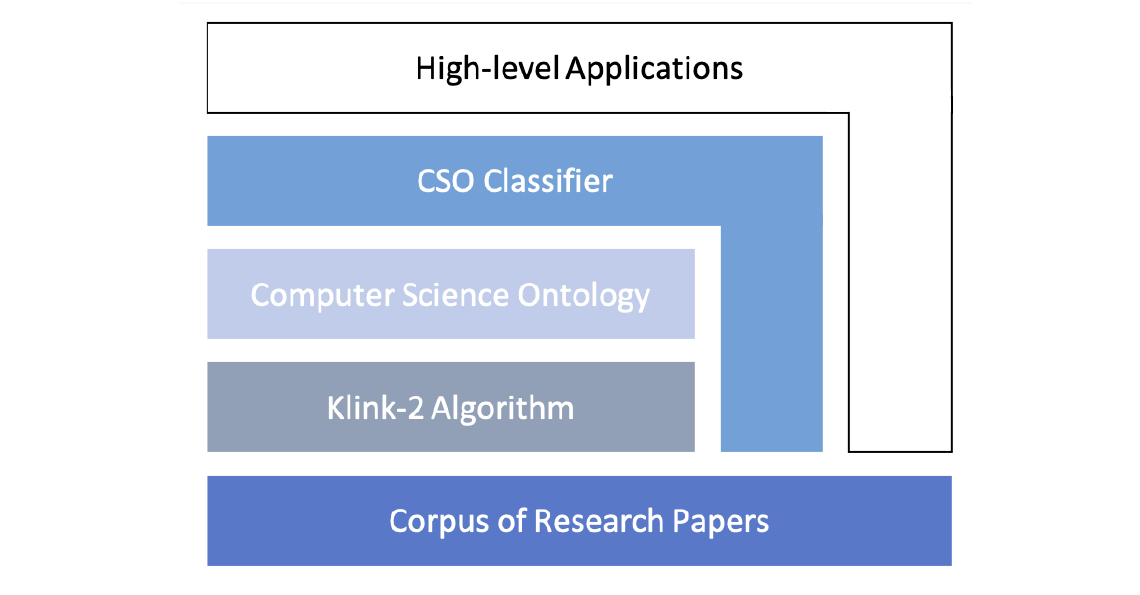
Ontology Extraction and Usage in the Scholarly Knowledge Domain
Ontologies of research areas have been proven to be useful in many application for analysing and making sense of scholarly data. In this chapter, we present the Computer Science Ontology (CSO), which is the largest ontology of research areas in the field of Computer Science, and discuss a number of applications that build on CSO, to support high-level tasks, such as topic classification, metadata extraction, and recommendation of books.
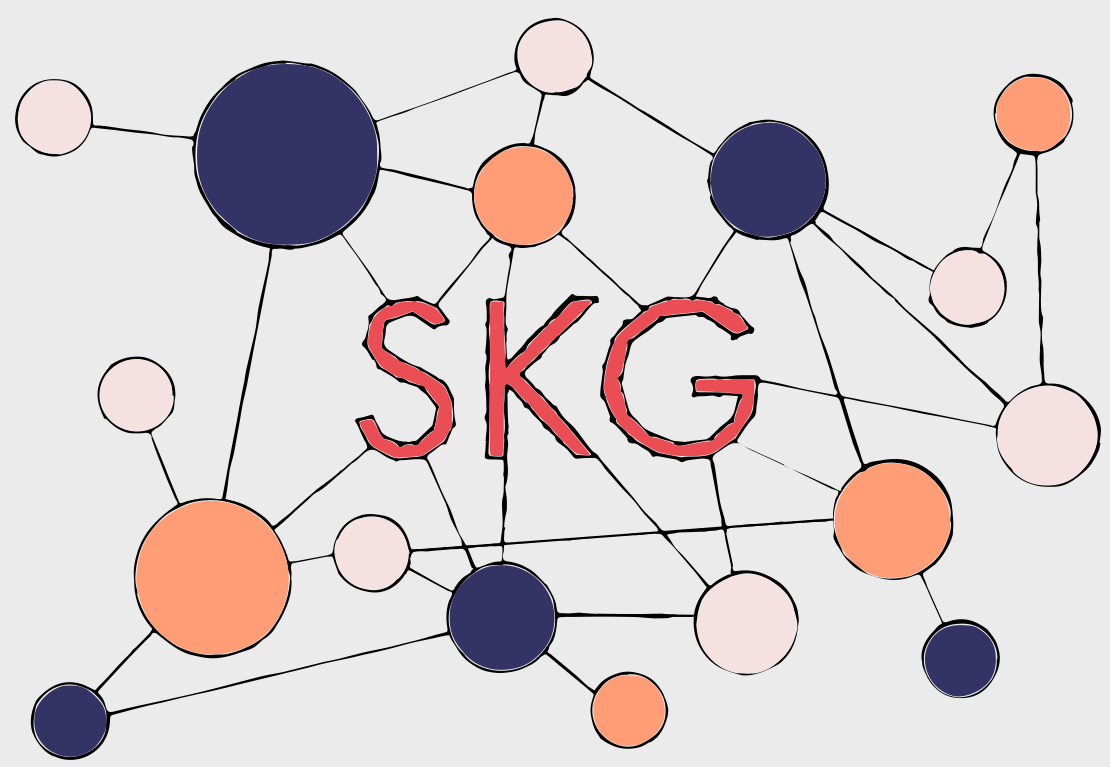
1st Workshop on Scientific Knowledge Graphs (SKG2020)
In the last decade, we experienced an urgent need for a flexible, context-sensitive, fine-grained, and machine-actionable representation of scholarly knowledge and corresponding infrastructures for knowledge curation, publishing and processing. Such technical infrastructures are becoming increasingly popular in representing scholarly knowledge as structured, interlinked, and semantically rich Scholarly Knowledge Graphs (SKG).
The 1st Workshop on Scientific Knowledge Graphs (SKG2020) aims at bringing together researchers and practitioners from different fields (including, but not limited to, Digital Libraries, Information Extraction, Machine Learning, Semantic Web, Knowledge Engineering, Natural Language Processing, Scholarly Communication, and Bibliometrics) in order to explore innovative solutions and ideas for the production and consumption of Scientific Knowledge Graphs (SKGs).

1st Smart City and Robotic Challenge (SCiRoC 2019)
Last week — 18th to 21st September 2019 — the first International Competition on Smart Cities and Robotics took place in Milton Keynes (UK). Different teams from Spain, UK, Germany, France, Portugal and others took part in this competition. As the name suggests, SCiRoC aims at bringing robots in the context of smart cities. Indeed, their primary objective was to interact both with smart cities infrastructures, such as the MK Data Hub, and citizens.
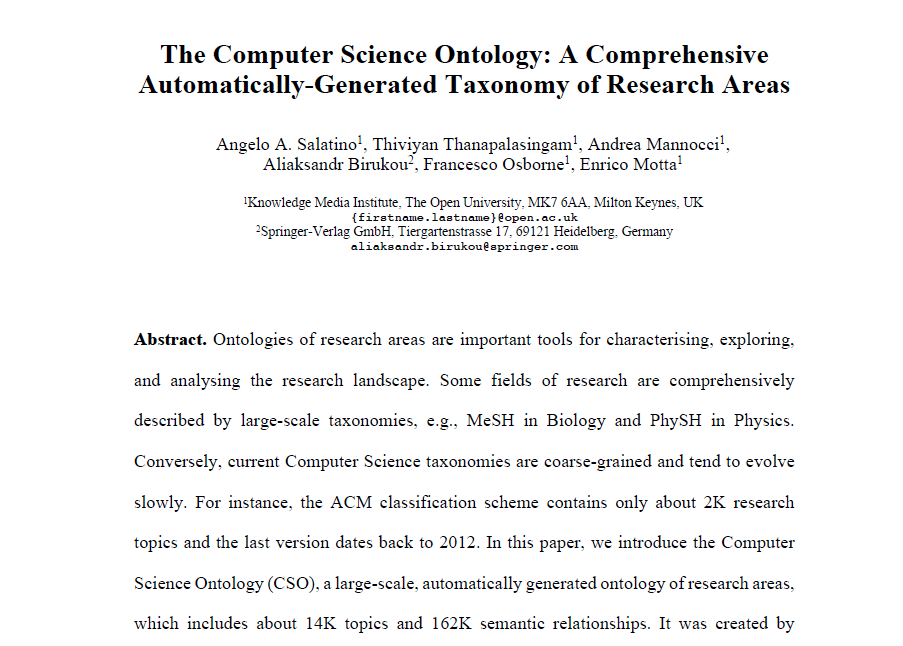
The Computer Science Ontology: A Comprehensive Automatically-Generated Taxonomy of Research Areas
Ontologies of research areas are important tools for characterising, exploring, and analysing the research landscape. Some fields of research are comprehensively described by large-scale taxonomies, e.g., MeSH in Biology and PhySH in Physics. Conversely, current Computer Science taxonomies are coarse-grained and tend to evolve slowly. For instance, the ACM classification scheme contains only about 2K research topics and the last version dates back to 2012. In this paper, we introduce the Computer Science Ontology (CSO), a large-scale, automatically generated ontology of research areas, which includes about 14K topics and 162K semantic relationships. It was created by applying the Klink-2 algorithm on a very large dataset of 16M scientific articles. CSO presents two main advantages over the alternatives: i) it includes a very large number of topics that do not appear in other classifications, and ii) it can be updated automatically by running Klink-2 on recent corpora of publications. CSO powers several tools adopted by the editorial team at Springer Nature and has been used to enable a variety of solutions, such as classifying research publications, detecting research communities, and predicting research trends. To facilitate the uptake of CSO, we have also released the CSO Classifier, a tool for automatically classifying research papers, and the CSO Portal, a web application that enables users to download, explore, and provide granular feedback on CSO. Users can use the portal to navigate and visualise sections of the ontology, rate topics and relationships, and suggest missing ones. The portal will support the publication of and access to regular new releases of CSO, with the aim of providing a comprehensive resource to the various research communities engaged with scholarly data.
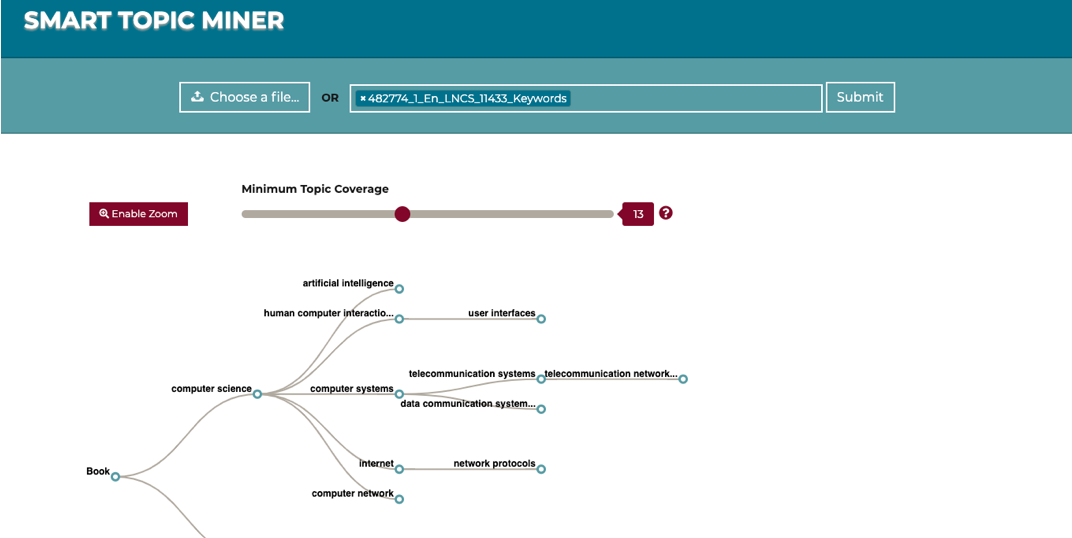
Smart Topics Miner 2: Improving Proceedings Retrievability at Springer Nature
Producing a robust and comprehensive representation of the research topics covered by a scientific publication is a crucial task that has a major impact on its retrievability and consequently on the diffusion of the relevant scientific ideas. Springer Nature, the world’s largest academic book publisher, has typically entrusted this task to the most expert editors, which had to manually analyse new books and produce a list of the most relevant topics. To support Springer Nature in this task, we developed Smart Topic Miner, an application that assists the editorial team in annotating proceedings books according to a large-scale ontology of research areas. Over the past three years, we evolved this application according to the editors’ feedback and developed a new engine, a new interface, and several other functionalities. In this demo paper, we present Smart Topic Miner 2, the most recent version of the tool, which is being regularly utilized by editors in Germany, China, Brazil, and Japan to annotate all book series covering conference proceedings in Computer Science, for a total of about 800 volumes per year.
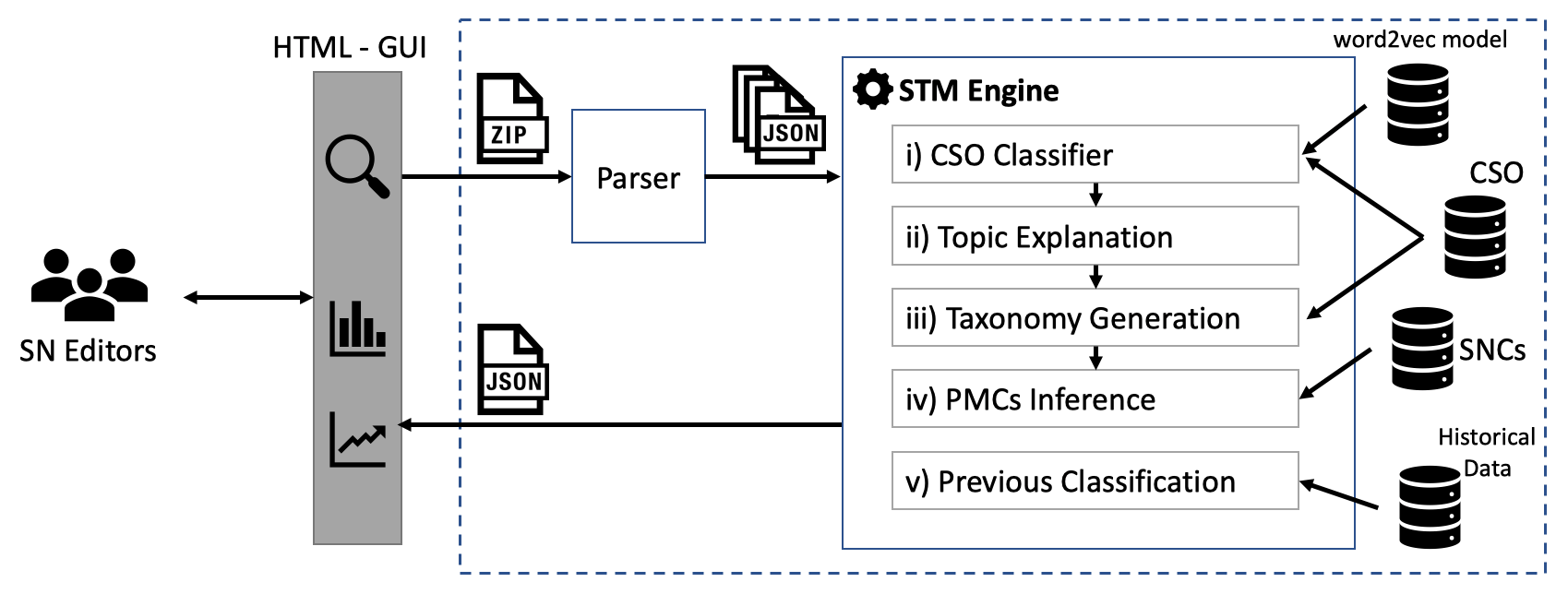
Improving Editorial Workflow and Metadata Quality at Springer Nature
Identifying the research topics that best describe the scope of a scientific publication is a crucial task for editors, in particular because the quality of these annotations determine how effectively users are able to discover the right content in online libraries. For this reason, Springer Nature, the world’s largest academic book publisher, has traditionally entrusted this task to their most expert editors. These editors manually analyse all new books, possibly including hundreds of chapters, and produce a list of the most relevant topics. Hence, this process has traditionally been very expensive, time-consuming, and confined to a few senior editors. For these reasons, back in 2016 we developed Smart Topic Miner (STM), an ontology-driven application that assists the Springer Nature editorial team in annotating the volumes of all books covering conference proceedings in Computer Science. Since then STM has been regularly used by editors in Germany, China, Brazil, India, and Japan, for a total of about 800 volumes per year. Over the past three years the initial prototype has iteratively evolved in response to feedback from the users and evolving requirements.
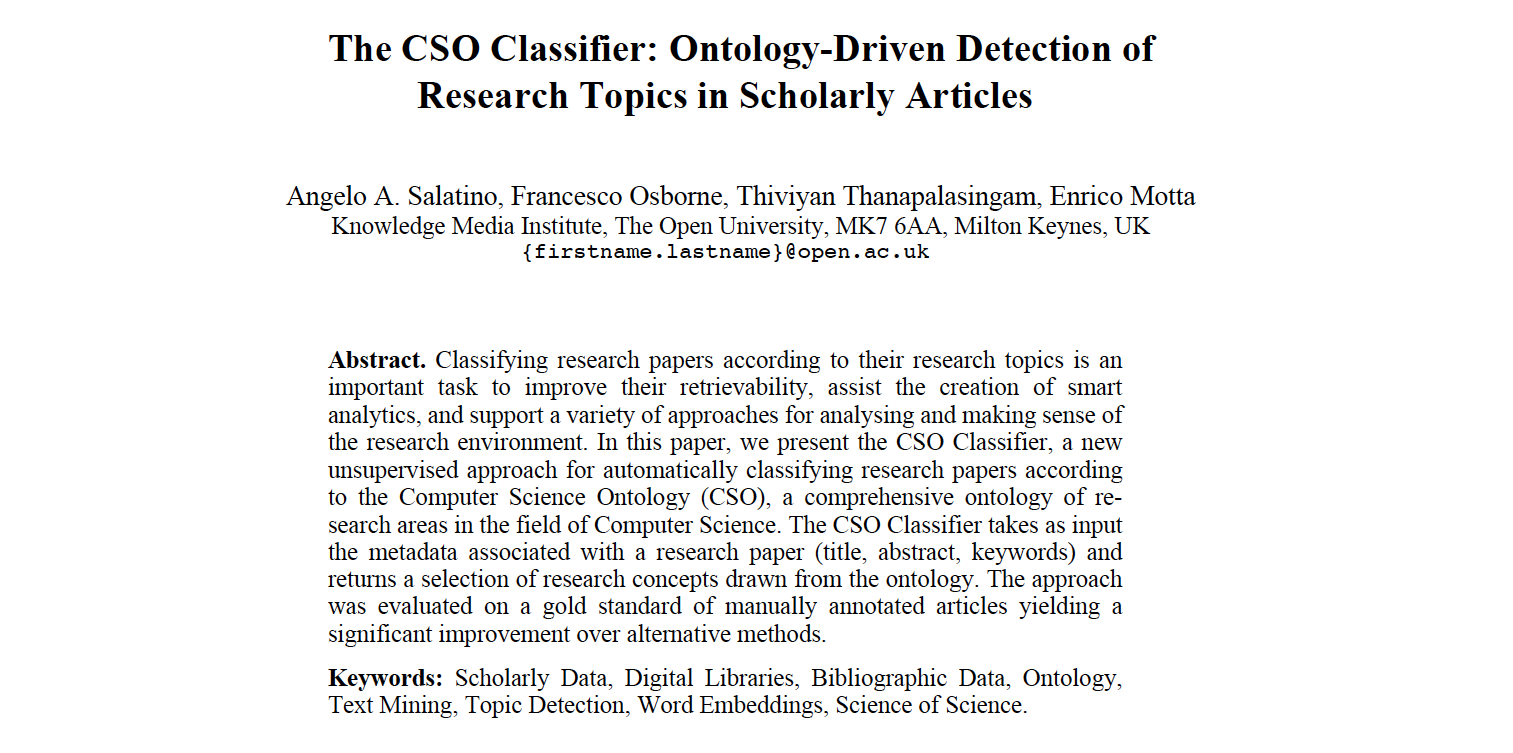
The CSO Classifier: Ontology-Driven Detection of Research Topics in Scholarly Articles
Classifying research papers according to their research topics is an important task to improve their retrievability, assist the creation of smart analytics, and support a variety of approaches for analysing and making sense of the research environment. In this paper, we present the CSO Classifier, a new unsupervised approach for automatically classifying research papers according to the Computer Science Ontology (CSO), a comprehensive ontology of research areas in the field of Computer Science. The CSO Classifier takes as input the metadata associated with a research paper (title, abstract, keywords) and returns a selection of research concepts drawn from the ontology. The approach was evaluated on a gold standard of manually annotated articles yielding a significant improvement over alternative methods.
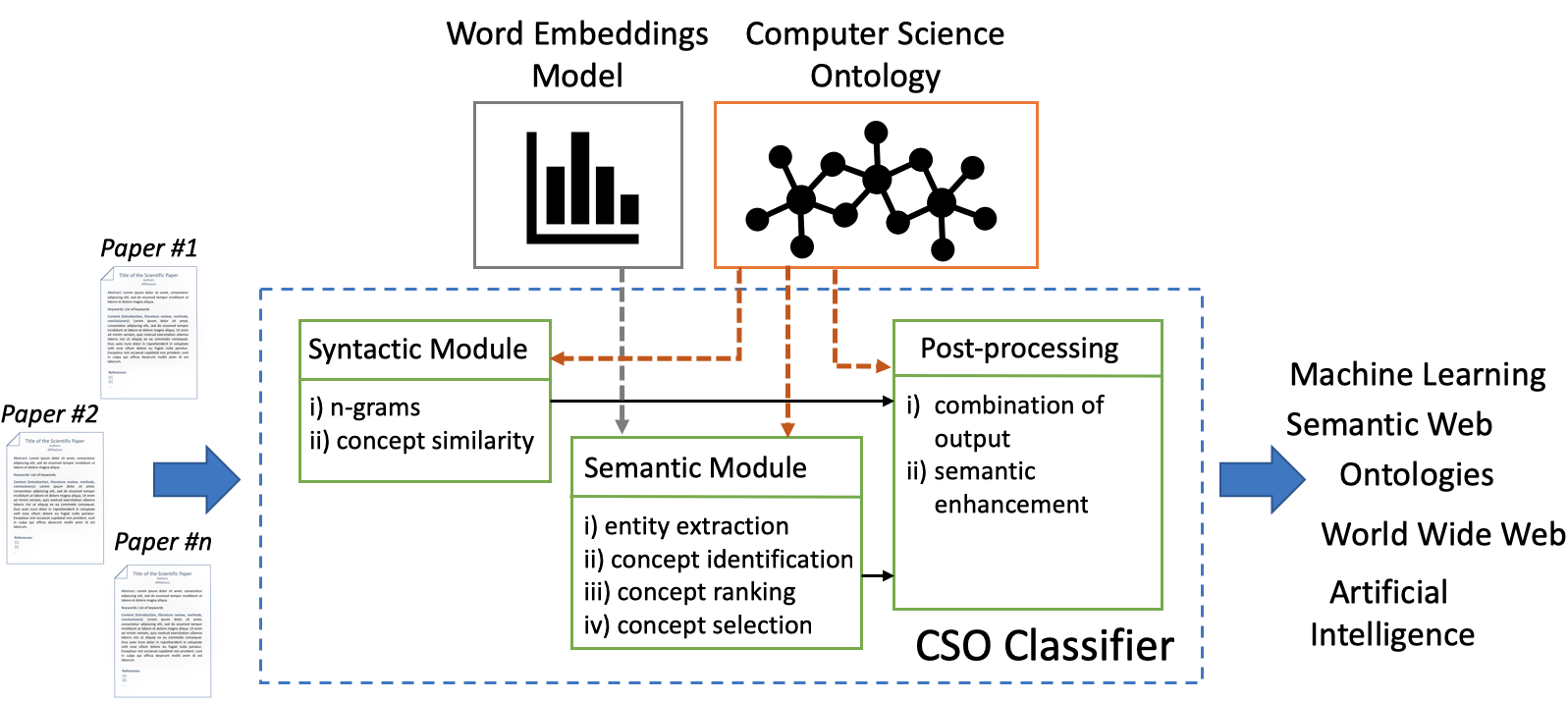
New release: CSO Classifier v2.1
We are pleased to announce that we recently created a new release of the CSO Classifier (v2.1), an application for automatically classifying research papers according to the Computer Science Ontology (CSO). Recently, we have been intensively working on improving its scalability, removing all its bottlenecks and making sure it could be run on large corpus. […]

CSO Classifier
Classifying research papers according to their research topics is an important task to improve their retrievability, assist the creation of smart analytics, and support a variety of approaches for analysing and making sense of the research environment. In this page, we present the CSO Classifier, a new unsupervised approach for automatically classifying research papers according to the Computer Science Ontology (CSO), a comprehensive ontology of research areas in the field of Computer Science.



